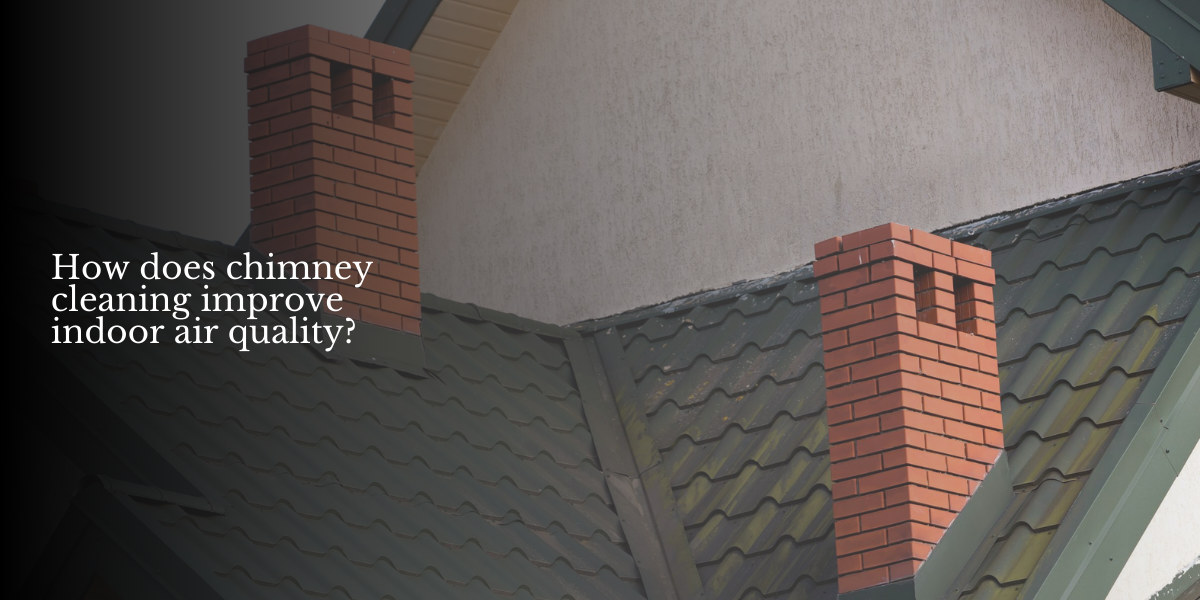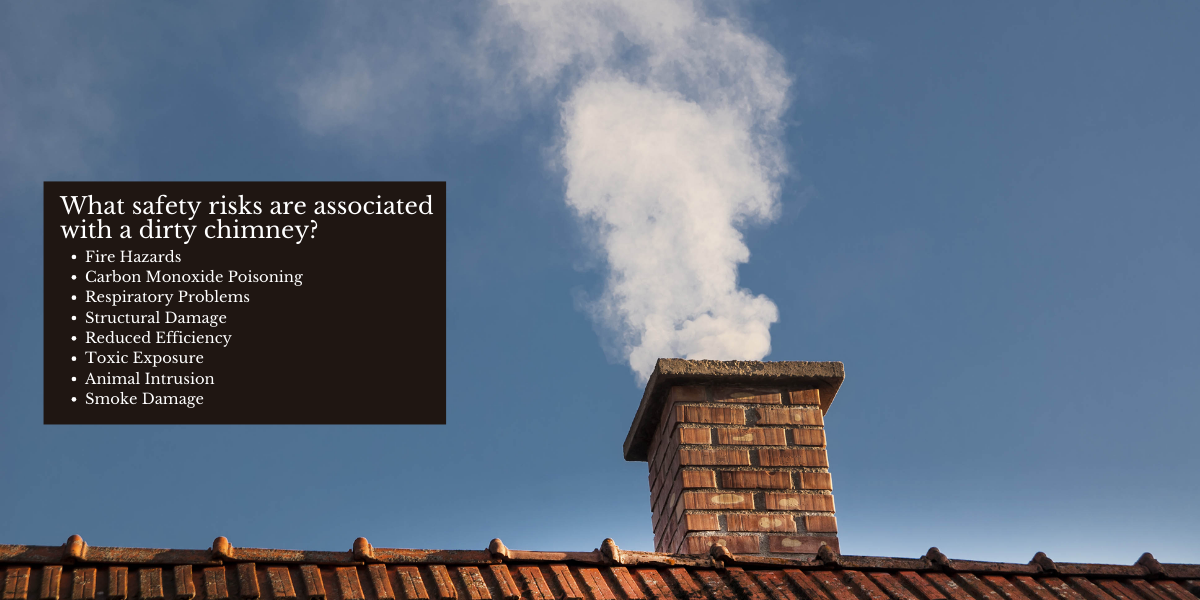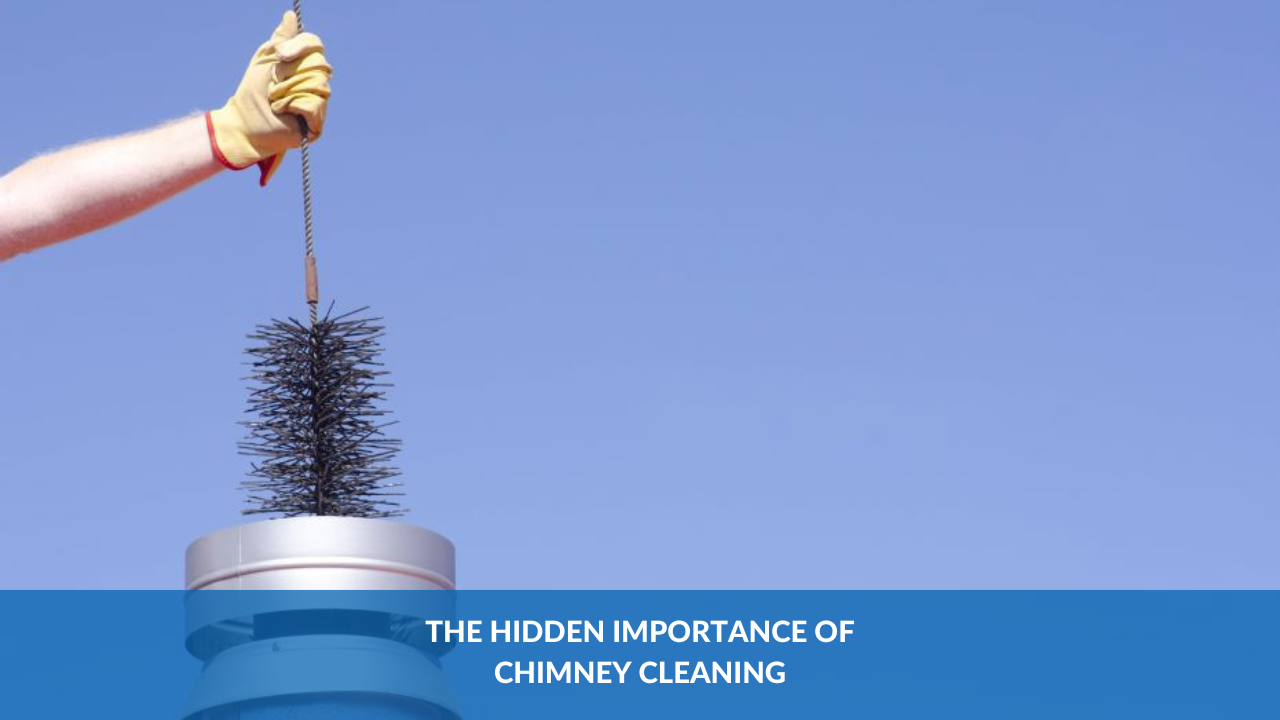As the crisp autumn air settles in and thoughts turn to cozy evenings by the fireplace, it’s easy to overlook the crucial task of chimney maintenance. However, regular chimney cleaning is not just a matter of tidiness; it’s an essential practice that ensures the safety, efficiency, and longevity of your home’s heating system. From preventing dangerous fires to improving air quality, the benefits of chimney cleaning are numerous and far-reaching.
Safety First: Preventing Chimney Fires
One of the primary reasons to keep your chimney clean is to prevent the risk of chimney fires. Over time, a substance called creosote builds up inside the chimney. This highly flammable residue is a byproduct of burning wood and can easily ignite if left unchecked. Regular cleaning removes this hazardous buildup, significantly reducing the risk of a devastating house fire.
Improved Efficiency and Lower Energy Costs
A clean chimney is an efficient chimney. When soot and debris accumulate, they can obstruct the flue, reducing airflow and making it harder for smoke to escape. This not only makes your fireplace less effective at heating your home but can also lead to higher energy costs as your heating system works overtime to compensate. By maintaining a clean chimney, you ensure optimal performance and potentially lower your energy bills.
Enhanced Indoor Air Quality
Your chimney plays a crucial role in venting harmful gases out of your home. When it’s clogged or dirty, these gases can back up into your living space, compromising your indoor air quality. Regular cleaning helps maintain proper ventilation, ensuring that carbon monoxide and other dangerous fumes are safely expelled from your home.
Prolonging the Life of Your Chimney
Neglecting chimney maintenance can lead to costly repairs down the line. The acidic nature of creosote can corrode chimney liners and damage brickwork over time. By investing in regular cleaning, you’re not just maintaining your chimney; you’re protecting it from premature wear and tear, potentially saving thousands in repair costs.
Early Detection of Structural Issues
Professional chimney cleaning services often include inspections that can catch minor problems before they become major headaches. From loose bricks to damaged flue liners, early detection of these issues can prevent more serious structural damage and ensure the continued safe operation of your fireplace.
Pest Prevention
A neglected chimney can become an attractive home for birds, squirrels, and other small animals. These unwanted guests can create blockages, introduce diseases, and cause damage to your chimney structure. Regular cleaning and maintenance help keep your chimney critter-free and functioning properly.
How does chimney cleaning improve indoor air quality?

Chimney cleaning plays a crucial role in improving indoor air quality, benefiting both the health of your home’s occupants and the overall living environment. Here’s how regular chimney maintenance contributes to better air quality inside your home:
Removal of Harmful Particulates
One of the primary ways chimney cleaning improves indoor air quality is by removing harmful particulates that accumulate over time. When wood burns in a fireplace or wood stove, it produces smoke containing various particles and chemicals. These substances can adhere to the inner walls of the chimney, forming a layer of creosote and soot.
As this buildup thickens, it can begin to affect the air quality in your home. During subsequent fires or even when the fireplace is not in use, these particulates can dislodge and enter your living space. Regular chimney cleaning removes this accumulation, preventing these harmful particles from circulating in your home’s air.
Enhanced Ventilation
A clean chimney functions more efficiently in terms of ventilation. When a chimney is clogged or dirty, it can’t effectively draw smoke and gases out of your home. This poor ventilation can lead to a backflow of smoke and other combustion byproducts into your living areas.
By ensuring your chimney is clean and free from obstructions, you maintain proper airflow. This improved ventilation helps to expel smoke, gases, and other airborne contaminants more effectively, keeping them out of your indoor air.
Prevention of Mold and Mildew Growth
Chimneys are susceptible to moisture intrusion, especially if they’re not properly maintained. When moisture combines with the organic material in creosote and soot, it creates an ideal environment for mold and mildew growth.
Mold spores can easily spread through your home’s air circulation system, significantly impacting indoor air quality and potentially causing health issues for occupants. Regular chimney cleaning removes the conditions that allow mold to thrive, thereby preventing this air quality hazard.
Reduction of Carbon Monoxide Risk
Perhaps the most critical way chimney cleaning improves air quality is by reducing the risk of carbon monoxide buildup. Carbon monoxide is a colorless, odorless gas produced by the incomplete combustion of fuels. A clogged or poorly functioning chimney can prevent this dangerous gas from properly venting out of your home.
By keeping your chimney clean and in good repair, you ensure that carbon monoxide and other harmful gases are efficiently expelled from your living space, maintaining safe air quality levels.
Elimination of Odors
A dirty chimney can be a source of unpleasant odors that permeate your home. These smells can range from a smoky scent to more pungent odors caused by creosote buildup or even small animals that may have nested in the chimney.
Regular cleaning eliminates these odor sources, contributing to fresher, cleaner-smelling air throughout your home.
Improved Efficiency of Air Purification Systems
If you use air purifiers or have a whole-house air filtration system, a clean chimney can enhance their effectiveness. When your chimney is functioning properly, it reduces the overall load on these systems by minimizing the introduction of particulates and contaminants into your home’s air.
What safety risks are associated with a dirty chimney?

A dirty chimney poses several significant safety risks to both the home and its occupants. Here are the key dangers associated with neglecting chimney maintenance:
Fire Hazards
The most severe risk of a dirty chimney is the potential for a chimney fire. This danger primarily stems from the buildup of creosote, a highly flammable substance that forms as a byproduct of burning wood. As creosote accumulates on the inner walls of the chimney, it becomes increasingly susceptible to ignition, especially when exposed to high temperatures. A chimney fire can quickly spread to other parts of the house, causing extensive damage and putting lives at risk.
Carbon Monoxide Poisoning
A dirty or obstructed chimney can lead to the dangerous accumulation of carbon monoxide within the home. When the chimney is clogged with soot, debris, or creosote, it cannot effectively vent the toxic gases produced by combustion. This obstruction can cause carbon monoxide to back up into living spaces. Since carbon monoxide is odorless and colorless, it’s particularly dangerous, potentially leading to severe health issues or even death if not detected early.
Respiratory Problems
The buildup of soot, creosote, and other particulates in a dirty chimney can significantly impact indoor air quality. When the fireplace is used, these contaminants can be released into the living space, leading to various respiratory issues. Occupants may experience irritation of the lungs, exacerbation of existing conditions like asthma, or develop new respiratory problems over time.
Structural Damage
Neglecting chimney cleaning can lead to structural damage over time. The accumulation of creosote and moisture can deteriorate the chimney lining and masonry. This deterioration can create cracks and gaps in the chimney structure, potentially allowing heat and flames to reach combustible parts of the house during a fire.
Reduced Efficiency
A dirty chimney operates less efficiently. The buildup of soot and creosote narrows the flue, restricting proper airflow. This restriction can lead to poor draft, causing smoke to enter the home instead of being expelled through the chimney. It also reduces the overall heating efficiency of the fireplace or wood stove.
Toxic Exposure
Creosote is not only a fire hazard but also a toxic substance. Prolonged exposure to creosote can cause skin irritation, respiratory issues, and in severe cases, may contribute to the development of certain cancers. A dirty chimney increases the risk of exposure to this harmful substance.
Animal Intrusion
Neglected chimneys can become attractive nesting sites for birds, squirrels, and other small animals. These animals can create blockages with their nests, leading to poor ventilation and increased fire risk. Additionally, they may introduce parasites or diseases into the home.
Smoke Damage
When a chimney is dirty or obstructed, it may not effectively draw smoke out of the home. This can lead to smoke damage within the house, discoloring walls, ceilings, and furnishings, and leaving persistent odors.
Summary:
Chimney cleaning is a critical home maintenance task that goes far beyond mere cleanliness. It’s a vital practice that ensures the safety of your home, improves the efficiency of your heating system, enhances indoor air quality, and can save you money in the long run. By investing in regular chimney cleaning, you’re not just maintaining a part of your home; you’re protecting your family, your property, and your peace of mind. As the saying goes, an ounce of prevention is worth a pound of cure, and nowhere is this truer than in the care of your chimney.


